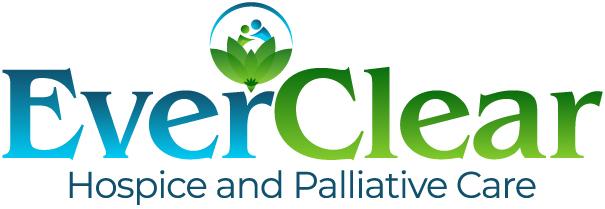End-of-life care, or hospice care, is a specialized area of healthcare that focuses on providing compassionate and comprehensive support to individuals facing the final stages of their lives.
Hospice care involves addressing the physical needs and symptom management of these individuals and offering emotional, spiritual, and social support to help them and their families navigate their final days with dignity and grace.
Understanding that end-of-life care is not solely about managing pain and other physical symptoms is essential. It is also about helping individuals find meaning, comfort, and a sense of peace during their final days. This requires a holistic approach that goes beyond just treating the body and involves nurturing the mind and spirit as well.
In this blog, we will explore the transformative power of end-of-life care by examining the various components that make it an essential aspect of healthcare.
We will look at the importance of hospice care, understand the purpose of life during end-of-life care, the role of emotional and spiritual support, the significance of family and friends, the integration of holistic care, the benefits of advanced care planning, and overcome the stigma surrounding end-of-life care.
The Importance of Hospice Care

Hospice care is a crucial component of end-of-life care that provides a comprehensive and compassionate approach to supporting individuals with life-limiting illnesses and their families. This type of care focuses on maintaining the highest possible quality of life for those in their final days, weeks, or months, prioritizing comfort and dignity.
Hospice care is typically provided by a team of interdisciplinary professionals, including doctors, nurses, social workers, chaplains, and volunteers, who work together to address their patients’ physical, emotional, and spiritual needs.
One of the distinguishing features of hospice care is the emphasis on treating the whole person rather than just addressing their medical condition. This approach recognizes that the end-of-life experience is not just about the physical decline but also encompasses emotional, spiritual, and social aspects that must be addressed to ensure a meaningful and comfortable transition.
Hospice care is also unique in that it extends support to the families of those receiving care. The end-of-life journey can be incredibly challenging for loved ones, and hospice care provides them with the necessary resources, guidance, and emotional support to navigate this difficult time. This can include grief counseling, respite care, and practical funeral planning assistance.
Understanding the Purpose of Life During End-of-Life Care
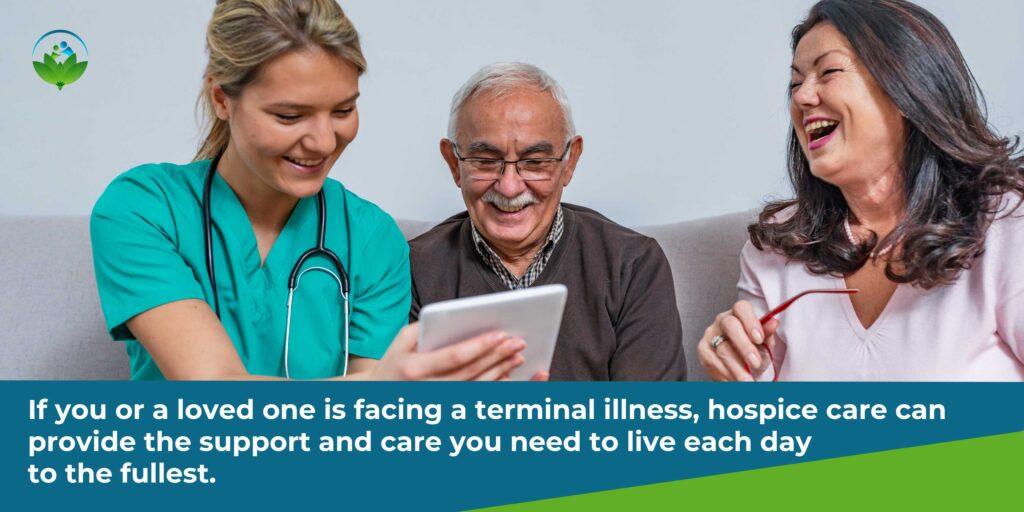
Coming to terms with one’s mortality and finding meaning in the face of death is a deeply personal and often challenging journey. This introspection is essential to end-of-life care, as it allows individuals to reflect on their lives, reconcile any unresolved issues, and find a sense of purpose during their final days.
By understanding the purpose of life during this critical time, patients can experience a sense of peace and acceptance that makes their transition more comfortable and meaningful.
One way that end-of-life care providers can help individuals explore their sense of purpose is by encouraging them to share their life stories, values, and beliefs. This can help them better understand their personal narrative and how their experiences have shaped their identity, values, and priorities.
Another essential aspect of understanding the purpose of life during end-of-life care is addressing any unresolved emotional or spiritual issues. This may involve helping patients reconcile with estranged family members or friends, seeking forgiveness, or finding a sense of spiritual connection or comfort.
By addressing these emotional and spiritual concerns, patients can find a renewed sense of purpose and meaning as they approach the end of their lives.
The Transformative Power of End-of-Life Care
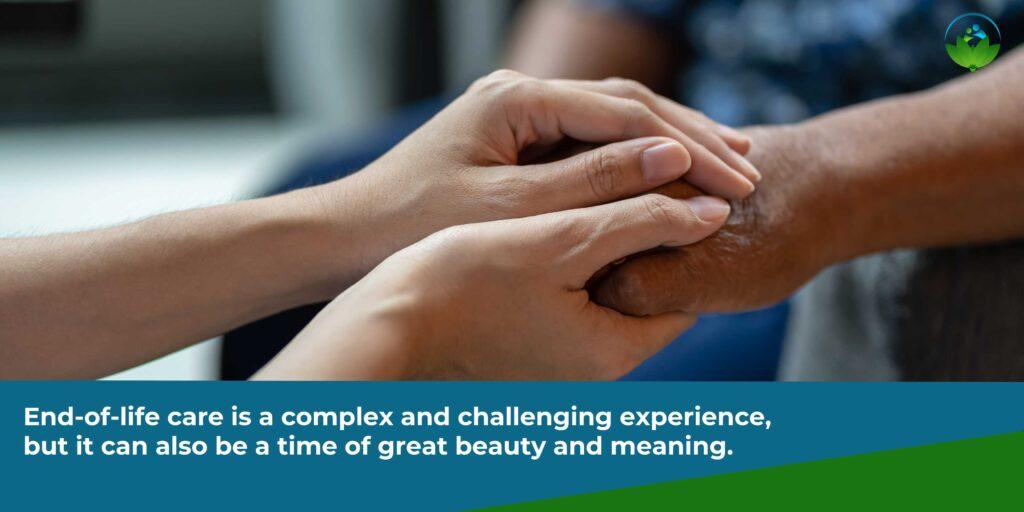
End-of-life care has the potential to be a profoundly transformative experience for both the individuals receiving it and their families. By providing comprehensive and compassionate support that addresses the physical, emotional, and spiritual aspects of the end-of-life experience, this type of care can help individuals find meaning, comfort, and a sense of peace during their final days.
The transformative power of end-of-life care stems from its holistic approach, which recognizes that individuals are more than just their medical conditions. By addressing the various dimensions of the end-of-life experience, end-of-life care providers can help patients and their families find a sense of closure, acceptance, and even growth during this challenging time.
Ultimately, the transformative power of end-of-life care lies in its ability to help individuals and their families embrace the final chapter of their lives with dignity and grace. By providing compassionate support that addresses not only the physical needs of patients but also their emotional and spiritual needs, end-of-life care can help individuals find meaning and peace during their final days while also offering comfort and support to their loved ones.
Emotional and Spiritual Support in End-of-Life Care
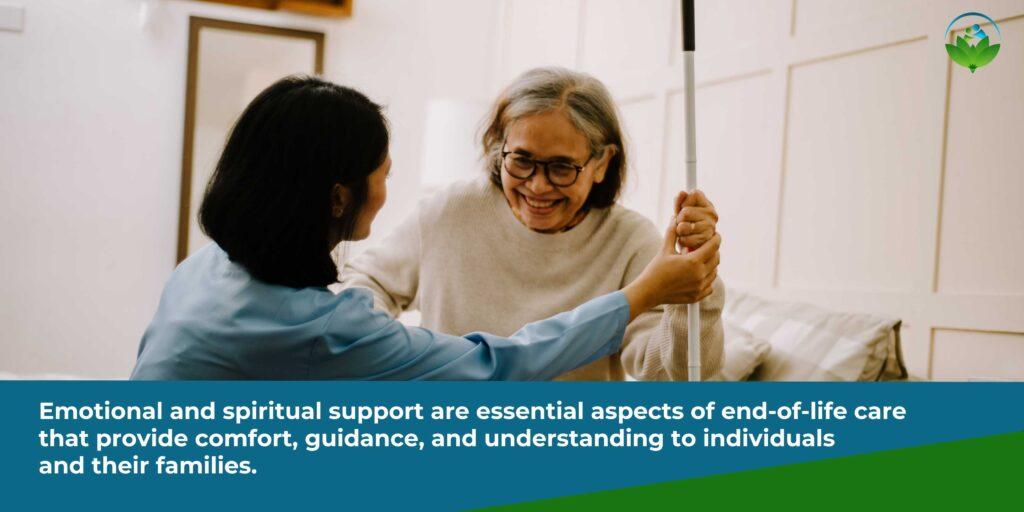
Emotional and spiritual support are critical aspects of end-of-life care, as they help individuals and their families navigate the complex and often overwhelming emotions accompanying the end-of-life experience. This type of support can take many forms, including counseling, spiritual care, and being present and listening to the concerns and fears of those facing the end of their lives.
One of the primary goals of emotional and spiritual support in end-of-life care is to help individuals find a sense of peace and acceptance as they approach the end of their lives. By providing a space for individuals to explore and express their emotions and beliefs, end-of-life care providers can help them find a more profound sense of meaning and purpose during their final days. This may involve addressing unresolved emotional issues, seeking forgiveness, or finding a sense of spiritual connection or comfort.
In addition to supporting patients’ emotional and spiritual needs, end-of-life care providers also play a crucial role in offering support to their families. The end-of-life journey can be incredibly challenging for loved ones, and providing emotional and spiritual support can help them navigate this difficult time. This can include grief counseling, respite care, and assistance with practical matters like funeral planning.
The Role of Family and Friends in End-of-Life Care
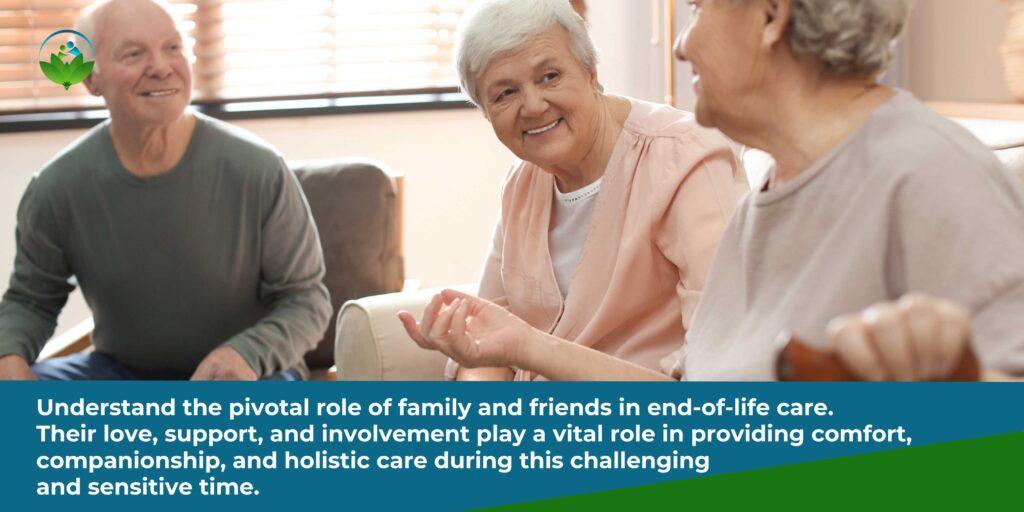
Family and friends play a crucial role in end-of-life care, providing emotional support, practical assistance, and a sense of connection for individuals facing the end of their lives. The involvement of loved ones in the end-of-life process can significantly impact the overall quality of the experience, as their presence can offer comfort, reassurance, and a sense of continuity during this challenging time.
One of the primary ways that family and friends can support their loved ones during end-of-life care is by being present and engaged in the process. This may involve attending medical appointments, participating in care planning meetings, or simply spending time with their loved one, offering conversation and companionship.
In addition to providing emotional support, family and friends can also assist with the practical aspects of end-of-life care. This can include helping with personal care tasks, managing medications, or coordinating with healthcare providers to ensure that their loved one’s needs are met.
Integrating Holistic Care into End-of-Life Care
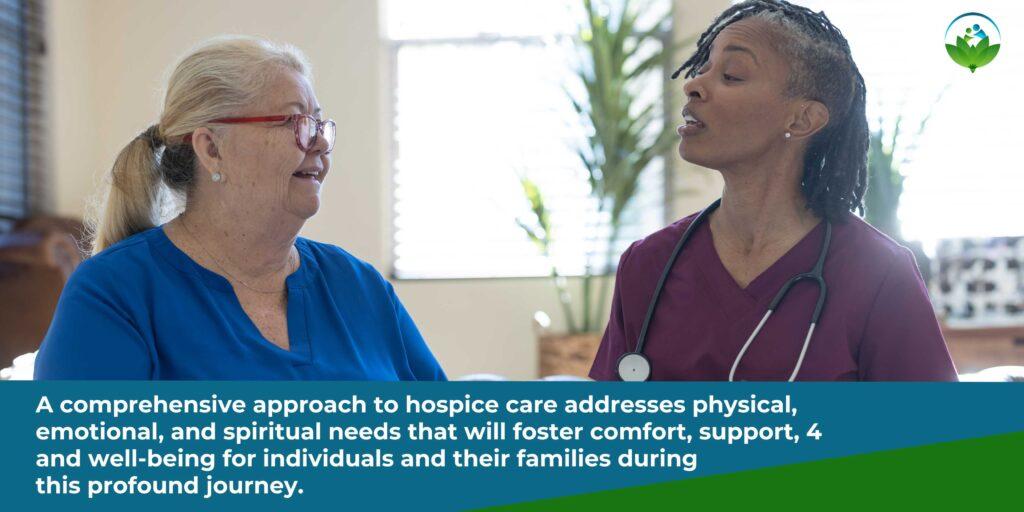
Holistic care is an approach to healthcare that recognizes the interconnection between the physical, emotional, and spiritual aspects of well-being. This approach is particularly well-suited to end-of-life care, as it acknowledges that individuals are more than just their medical conditions and that their emotional and spiritual well-being can significantly impact their overall quality of life.
Integrating holistic care into end-of-life care involves addressing not only the physical symptoms and needs of patients but also their emotional and spiritual concerns. This can include counseling, spiritual care, and other therapies to help individuals find peace and acceptance during their final days.
In addition to addressing the emotional and spiritual aspects of well-being, holistic care in end-of-life care also involves considering the social and environmental factors that can impact patients’ experiences. This can include ensuring that individuals have access to a comfortable and supportive environment and opportunities for social connection and engagement.
The Benefits of Advance Care Planning
Advance care planning is a vital aspect of end-of-life care, as it allows individuals to express their preferences and values regarding the care they would like to receive at the end of their lives. By engaging in advance care planning, patients can ensure that their wishes are respected and their loved ones are relieved of the burden of making difficult decisions on their behalf.
One of the primary benefits of advanced care planning is that it gives individuals a sense of control over their end-of-life care. By discussing their preferences and values with their healthcare providers and loved ones, patients can help shape their care and ensure that it aligns with their beliefs and priorities.
Advance care planning also offers significant benefits to the family and friends of those facing the end of their lives. By providing clear guidance and direction regarding their loved one’s preferences, advance care planning can help reduce the stress and uncertainty often accompanying end-of-life decision-making.
Overcoming the Stigma Surrounding End-of-Life Care
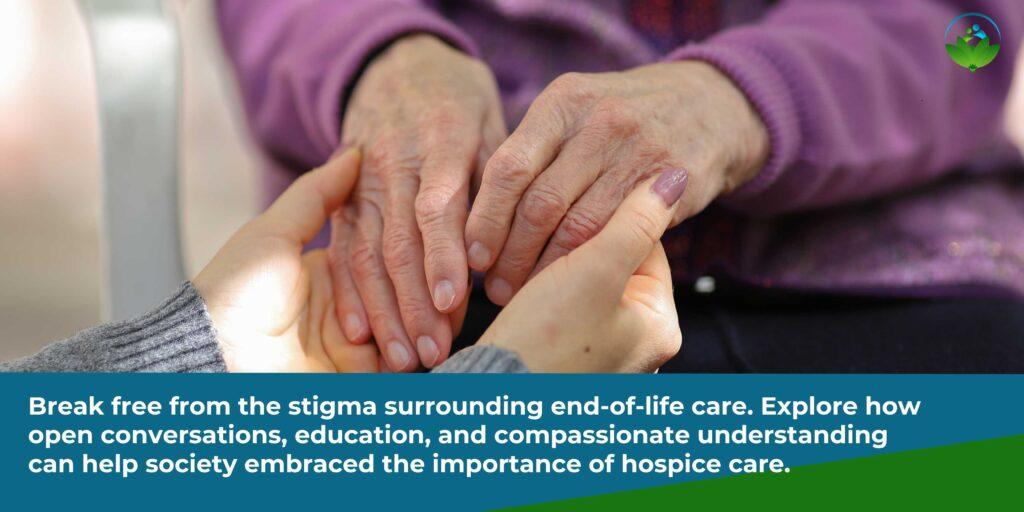
Despite the numerous benefits and transformative power of end-of-life care, there is still a stigma surrounding this type of care that can make it challenging for individuals and their families to access the support they need. This stigma often stems from misconceptions about end-of-life care and societal discomfort with discussing issues related to death and dying.
One way to overcome the stigma surrounding end-of-life care is by increasing public awareness and understanding of the benefits and importance of this type of care. By promoting open and honest conversations about death and end-of-life care, we can help dispel the myths and misconceptions that often surround this critical aspect of healthcare.
Another essential strategy for overcoming the stigma surrounding end-of-life care is ensuring that healthcare providers are adequately trained and equipped to provide compassionate and comprehensive support to those facing the end of their lives.
By promoting a culture of empathy, respect, and dignity within the healthcare system, we can ensure that end-of-life care is recognized as an essential aspect of healthcare and that individuals and their families receive the support they need during this challenging time.
It is also essential to recognize and respect individuals’ and their families’ diverse cultural and spiritual beliefs when providing end-of-life care. This may involve offering culturally sensitive care, providing access to spiritual support, and ensuring that end-of-life care plans align with the individual’s values and beliefs.
By overcoming the stigma surrounding end-of-life care, we can ensure that individuals and their families have access to the compassionate and comprehensive support they need during this critical time.
Final Thoughts: Embracing the Final Chapter with Dignity and Grace
End-of-life care is a specialized area of healthcare that provides compassionate and comprehensive support to individuals and their families facing the final stages of their lives. By addressing patients’ physical, emotional, and spiritual needs, this type of care can help individuals find meaning, comfort, and a sense of peace during their final days.
The transformative power of end-of-life care lies in its holistic approach, which recognizes that individuals are more than just their medical conditions. By providing emotional and spiritual support, integrating holistic care, and engaging in advance care planning, end-of-life care can help individuals and their families embrace the final chapter of their lives with dignity and grace.
It is essential to continue promoting awareness and understanding of the benefits and importance of hospice care while also working to overcome the stigma surrounding this critical aspect of healthcare. By doing so, we can ensure that individuals facing the end of their lives and their families receive the compassionate and comprehensive support they need to navigate this challenging time with comfort, dignity, and grace.
